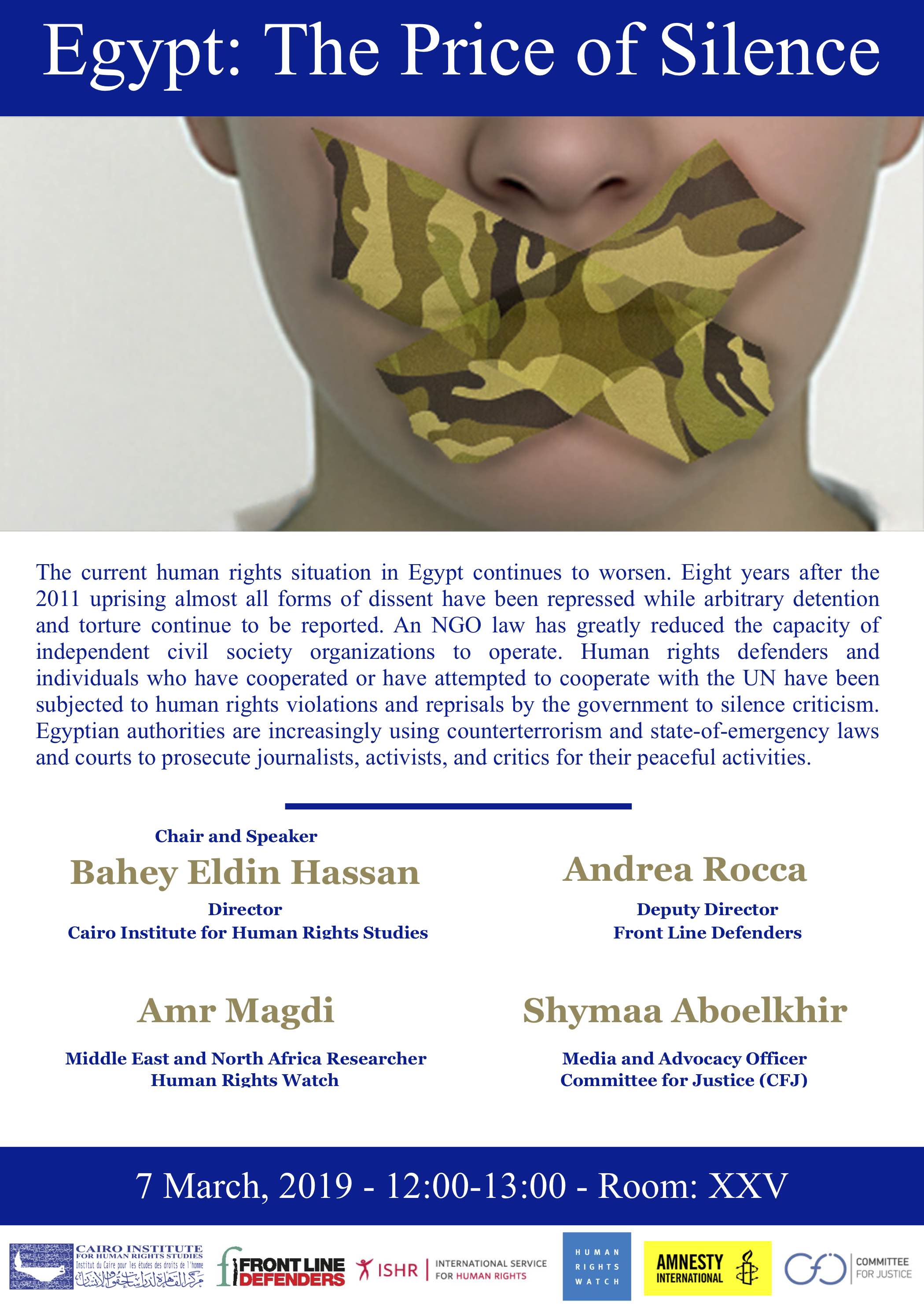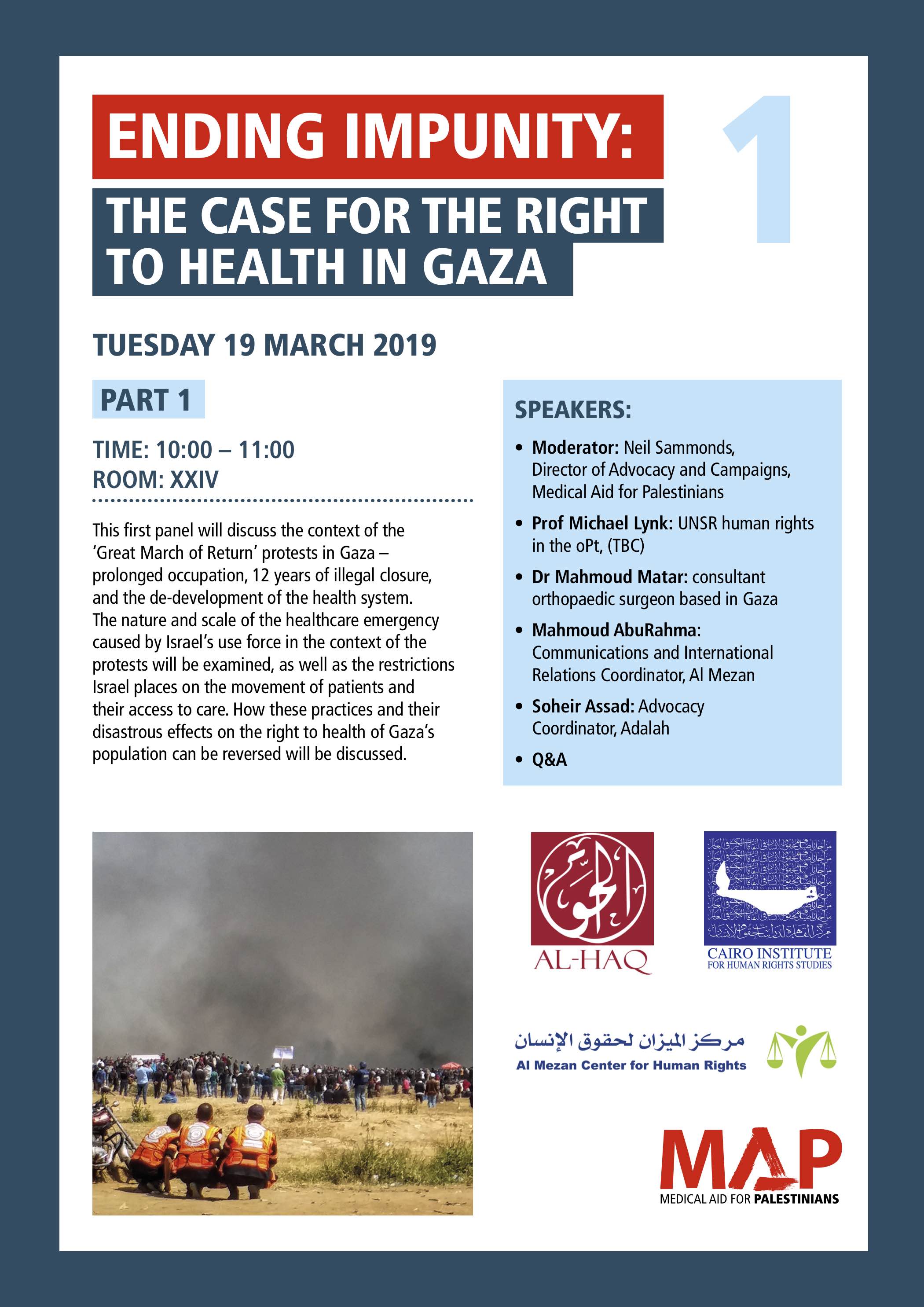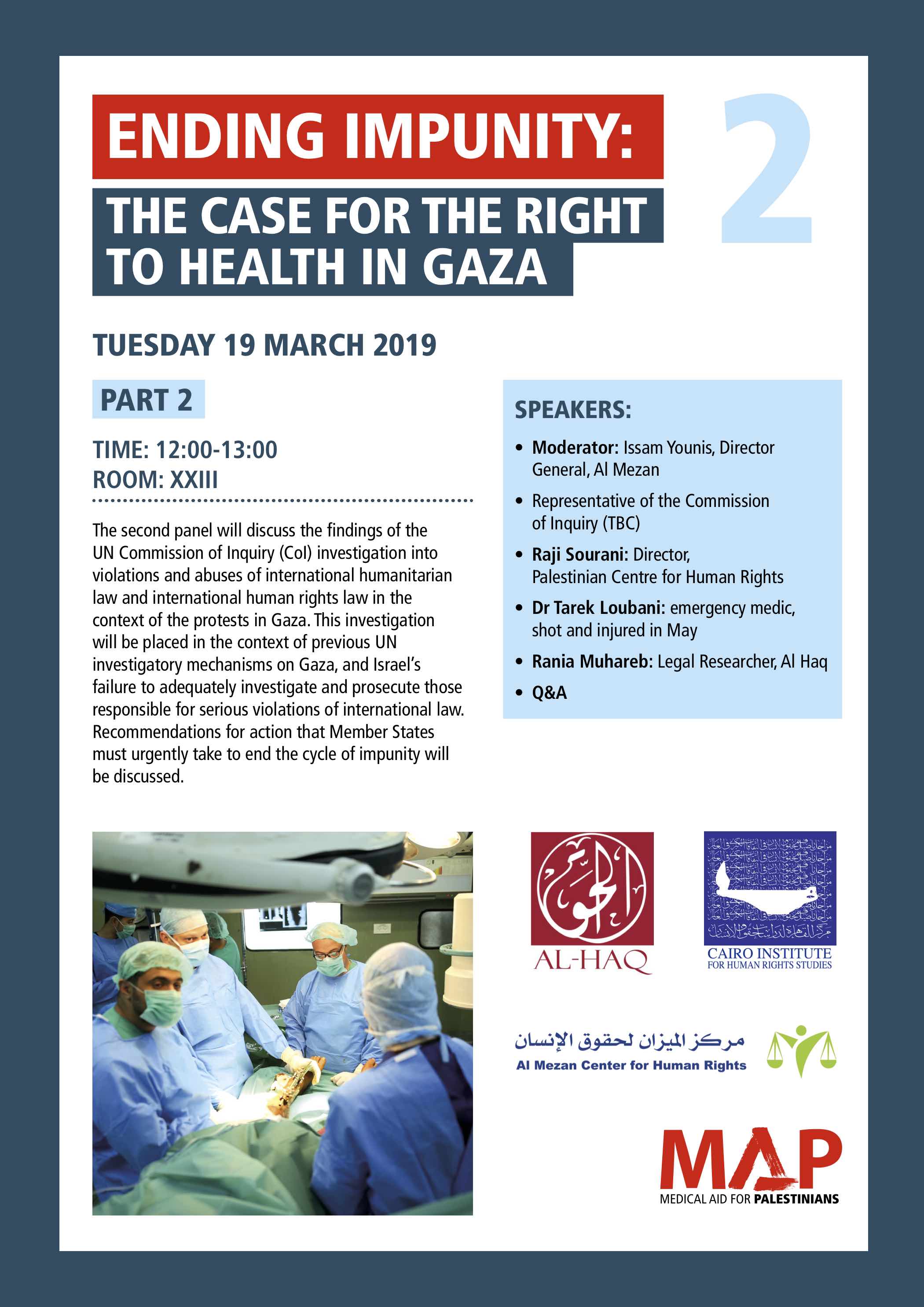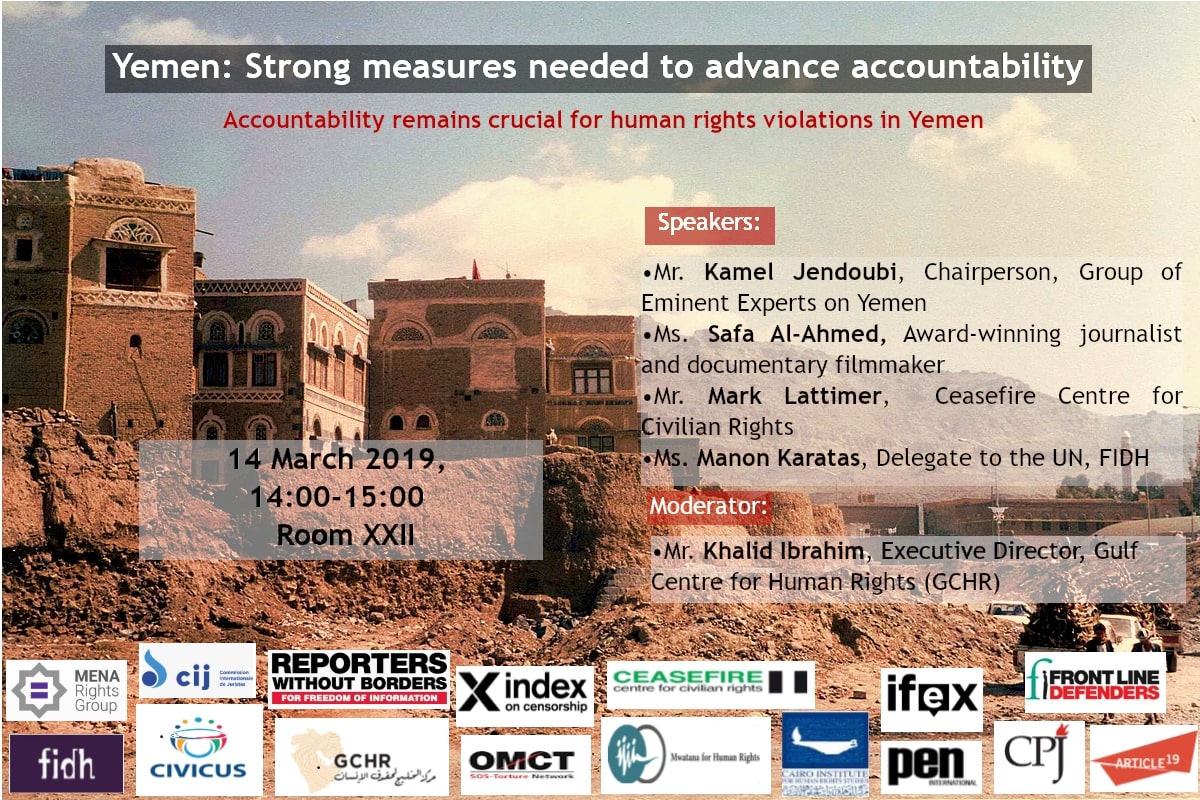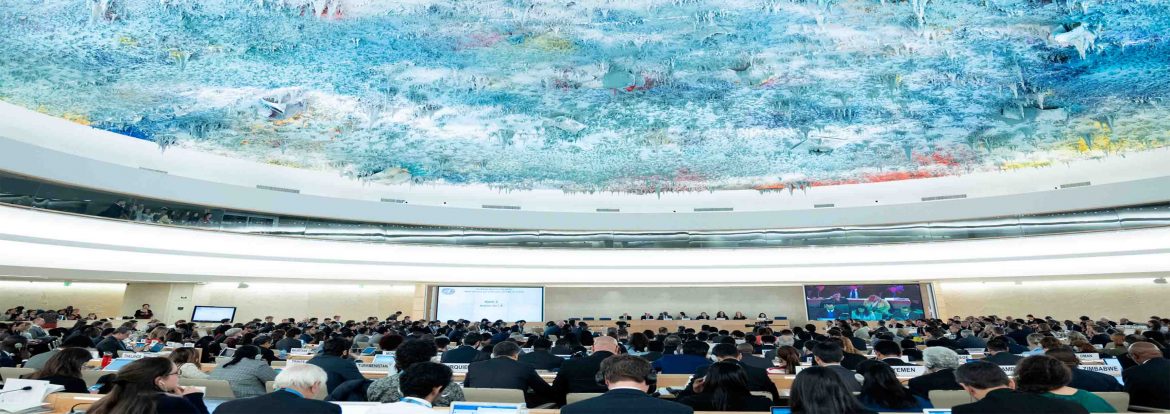28 فبراير 2019
حول نشر قاعدة بيانات الأمم المتحدة بالشركات العاملة في الأنشطة التجارية بالمستوطنات الإسرائيلية
السيدة ميشيل باشيليت، المفوضة السامية لحقوق الإنسان بالأمم المتحدة
بالايس ويلسون – مكتب المفوض السامي لحقوق الإنسان بالأمم المتحدة، جنيف، سويسرا
تحثكم المنظمات والشبكات والائتلافات والنقابات والحركات الفلسطينية الموقعة أدناه [1]على النشر العلني خلال الدورة الجارية الـ40 لمجلس حقوق الإنسان، لقاعدة بيانات الأمم المتحدة الخاصة بالشركات الضالعة في أعمال تجارية بالمستوطنات الإسرائيلية، والمشار لها في الفقرة 96 من تقرير بعثة تقصي الحقائق التابعة للأمم المتحدة بشأن المستوطنات الإسرائيلية غير القانونية وذلك امتثالاً لقرار مجلس حقوق الإنسان بالأمم المتحدة رقم 31/36 (2016). إذ ينذر المزيد من التأخر في نشر هذه البيانات باستمرار انعدام الشفافية بين المفوضية السامية لحقوق الإنسان والمجتمعات المتضررة، الأمر الذي لن يؤد إلا إلى تقويض المكتب وقاعدة بيانات الأمم المتحدة، ويعزز ثقافة الإفلات من العقاب عن انتهاكات حقوق الإنسان والجرائم المعترف بها دوليا في الأرض الفلسطينية المحتلة، والتي ترتكبها كل من الجهات الحكومية وغير الحكومية، بما فيها هذه الشركات.
خلال السنوات الثلاث الماضية، شددت منظمات المجتمع المدني الفلسطينية والإقليمية والدولية على أهمية قاعدة بيانات الأمم المتحدة كمبادرة لتسهيل تنظيم أنشطة الأعمال التجارية في الأرض الفلسطينية المحتلة بطريقة شفافة، وتحذير الشركات المتورطة في تلك الانشطة بالمستوطنات من المخاطر القانونية وغيرها من المخاطر المحتملة نتيجة أعمالهم وعلاقاتهم. كما طالبت المنظمات بضمان المساءلة عن الأضرار الناجمة عن انتهاكات حقوق الإنسان في هذا الصدد. تستند مبادئ قاعدة بيانات الأمم المتحدة للمبادئ التوجيهية للأمم المتحدة بشأن الأعمال التجارية وحقوق الإنسان بالقانون الدولي، وقد سبق وأعربت منظمات المجتمع المدني في فلسطين وحول العالم عن خيبة أملها وقلقها الشديد من تأخر نشر النتائج العملية علنًا، بالشفافية اللازمة، على مدى ثلاث سنوات منذ إنشاء قاعدة بيانات الأمم المتحدة. [2]
يرتكب الاحتلال الإسرائيلي، الممتد بحكم القانون وبحكم الضم الفعلي لأجزاء من الضفة الغربية المحتلة، انتهاكات عدة للقانون الدولي، على رأسها حرمان الفلسطينيين بشكل منهجي من حقهم في تقرير المصير والسيادة الدائمة على الموارد الطبيعية كحق أساسي، وبالتالي يبقى للفلسطينيين موارد قليلة لتطوير اقتصاد مستقل قابل للنمو، [3] مما يسهم في ارتفاع معدلات البطالة بين الفلسطينيين في الأرض المحتلة. في التقرير الأول للمفوضية السامية لحقوق الإنسان حول قاعدة بيانات الأمم المتحدة، يشير القسم الخاص بـ"الملاحظات الأولية لاستجابات مؤسسات الأعمال" إلى تعثر الاقتصاد الفلسطيني واستيلاء إسرائيل على الموارد الطبيعية الفلسطينية، بصفتها القوة المحتلة، ويعد ذلك هو المحرك الرئيسي للجوء الفلسطينيين للبحث عن عمل في المستوطنات. [4] بالإضافة إلى ذلك، قالت المفوضية صراحة أن وجود العمال الفلسطينيين في المستوطنات "لا يعف الشركات من مسئولياتها بموجب المبادئ التوجيهية."[5]
تشكل المستوطنات الإسرائيلية غير القانونية انتهاكًا خطيرًا للقانون الدولي، كما تعد جريمة حرب. لهذا يقع على عاتق الدول الإلتزام بعدم الاعتراف بقانونية المستوطنات وعدم تقديم أي مساعدة تعزز استمرارها. وقد أكدت هيئات الأمم المتحدة مرارًا، بما فيها مجلس الأمن والجمعية العامة ومجلس حقوق الإنسان، عدم شرعية المستوطنات الإسرائيلية وضرورة التمييز في التعاملات الدولية بين دولة إسرائيل والأرض المحتلة. في ضوء ذلك، نحث المفوضية السامية لحقوق الإنسان على النشر العلني لقاعدة بيانات الأمم المتحدة، إلى جانب التطورات الأخيرة والجهود المبذولة من بعض الدول في هذا الصدد، مثل شيلي وأيرلندا، والتمييز في تعاملاتها بين إسرائيل والأرض الفلسطينية المحتلة، كما نحث المفوضية على حظر السلع الاستيطانية تماشيًا مع القانون الدولي والتزاماتها كأطراف أخرى .
في سياق تصاعد بناء المستوطنات وتوسعها، والسياسات والتدابير المتعلقة بضم الأراضي، والتجاهل المستمر لحق الفلسطينيين في الحياة والكرامة وتقرير المصير، يجدر بمكتبكم النظر لقاعدة بيانات الأمم المتحدة باعتبارها أداة عملية وفعالة وحيوية لضمان عدم استمرار الدول والشركات في الاستفادة من حالة الاحتلال والظلم المطول، الأمر الذي سيسهم أيضًا في الإعمال الحقيقي لحق الفلسطينيين في تقرير المصير والسيادة الدائمة على الموارد الطبيعية، ضمن حقوق أخرى، وفي تحقيق العدالة للشعب الفلسطيني من خلال آليات القانون الدولي.
يحث المجتمع المدني الفلسطيني مكتبكم على أن يقف في مواجهة الصعوبات السياسية بشأن هذه المسألة، وأن يصر على جعل قاعدة بيانات الأمم المتحدة وثيقة علنية، وذلك لإثبات أهمية ولاية المكتب وضمان احترام وتنفيذ القانون الدولي وحماية حقوق السكان الفلسطينيين. وعليه فإننا ندعوكم للنشر العلني لقاعدة بيانات للأمم المتحدة وأسماء الشركات المدرجة فيها خلال الدورة العادية الـ40 لمجلس حقوق الإنسان المنعقدة في مارس 2019 بجنيف.
لمزيد من المعلومات، يرجى الرجوع للرسالتين المشتركتين المرفقتين، والمرسلتين سابقًا لمكتبكم.
أرسل الرسالتين منظمات المجتمع المدني الفلسطينية والإقليمية والدولية في فبراير ونوفمبر 2018.
وتفضلوا بقبول فائق الاحترام،
�
* الموقعون:
أعضاء مجلس منظمات حقوق الإنسان الفلسطينيةPHROC))
- جمعية دعم سجناء الضمير وحقوق الإنسان
- مؤسسة الضمير لحقوق الإنسان
- مؤسسة الحق
- مركز الميزان لحقوق الإنسان
- مركز موارد بديل للمساكن الفلسطينية وحقوق اللاجئين
- الحركة العالمية للدفاع عن الأطفال- فرع فلسطين
- حريات - مركز الدفاع عن الحريات والحقوق المدنية
- مركز القدس للمساعدة القانونية وحقوق الإنسان (JLAC)
- مركز رام الله لدراسات حقوق الإنسان
- المركز الفلسطيني لحقوق الإنسان (PCHR)
أعضاء الائتلاف الفلسطيني للحقوق الاقتصادية والاجتماعية والثقافية "عدالة":
- جمعية الشابات المسيحيات (YWCA)
- جمعية الشبان المسيحيين (YMCA)
- جمعية يابوس الخيرية (YCS)، لجنة الشؤون الفنية للمرأة (WATC)
- مركز المرأة للمساعدة القانونية والاستشارات (WCLAC)
- اتحاد العمال الاجتماعيين، اتحاد لجان العمل الزراعي (UAWC)
- جمعية أصدقاء مرضى الثلاسيميا TPFS فلسطين
- جمعية المرأة الفلسطينية للتنمية (PWWSD)
- جمعية سيدات الأعمال الفلسطينيات - أصالة
- مسرح الحرية - جنين
20 المنتدى الثقافي
- المنتدى العربي للجنس والتربية والصحة الإنجابية
- مركز ابداع المعلم (TCC)
- منتدى تنوير
- معهد منتدى الطلاب
- جمعية نجوم الأمل
- جمعية التنمية الاجتماعية
- مركز رام الله لدراسات حقوق الإنسان
- قادر لتنمية المجتمع
- كتلة العمل التقدمي
- نقابة عمال القطاع الصحي الخاص
- مركز الفن الشعبي
- نقابة عمال الصناعة الدوائية
- منتدى شباب الشراكة
- بال-ثينك للدراسات الاستراتيجية
- شبكة الفنون الأدائية الفلسطينية
- المنظمة الفلسطينية غير الحكومية لمناهضة العنف المنزلي ضد المرأة (المنتدى)
37.المعهد الوطني الفلسطيني للمنظمات غير الحكومية
38.جمعية الاغاثة الطبية الفلسطينية
- المجموعة الهيدرولوجية الفلسطينية لتنمية الموارد المائية والبيئية
- الطاقم الاستشاري الفلسطيني لتطوير المنظمات غير الحكومية (PCS)
- اتحاد نقابات العمال الجديد
- نقابة عمال الشركة الوطنية للمشروبات (NBC)
- جمعية مدرسة الأمهات
- جمعية التنمية العقلية
- نقابة عمال مصلحة مياه القدس
- نقابة عمال شركة كهرباء محافظة القدس (JDECO)
- النقابة المستقلة للاتحاد
- نقابة عمال الصحة
- نادي حلحول الرياضي
- منتدى أذرع شباب المستقبل
- جمعية فؤاد نصار
- نقابة عمال القطاع المالي
- فلسطينيات
- مركز الإعلام المجتمعي - غزة
- لجان التنمية والتراث
- جمعية مركز برج اللقلق المجتمعي
- نقابة عمال جامعة بيرزيت
- نقابة عمال جامعة بيت لحم
- رابطة لجان المرأة للعمل الاجتماعي (AWCSW)
- جمعية النجدة
- جمعية المدى للتنمية المجتمعية للفنون
- مركز العودة للطفولة والشباب
- مركز الهدف الثقافي
- جمعية الشباب والبيئة
- الجمعية الوطنية للديمقراطية والقانون
- جمعية التعاون لتنمية المجتمع
- جمعية الخريجات
- جمعية بنيان لتنمية المجتمع
- مركز الدفاع عن الحريات والحقوق المدنية "حريات"
- مؤسسة الشيخ حسن للثقافة والعلوم
شبكة المنظمات غير الحكومية الفلسطينية (PNGO):
تحالف يضم 145 منظمة فلسطينية غير حكومية في الأرض الفلسطينية المحتلة.
* المؤيدون:
- منتدى الحقوق
- مركز البحوث حول الشركات متعددة الجنسيات
- مركز القاهرة لدراسات حقوق الإنسانCIHRS) )
- تروكير
- 5. الخدمة الدولية لحقوق الإنسانISHR) )
- الاتحاد الدولي لحقوق الإنسان (FIDH))
- كونكتاس ديريتوس هيومانوس
- يوروميد رايتس<hr />
[1] تم اعتماد هذه الرسالة أيضًا من قبل: منتدى الحقوق، ومركز أبحاث الشركات متعددة الجنسيات (SOMO)، ومركز القاهرة لدراسات حقوق الإنسان (CIHRS)، وتروكير، والاتحاد الدولي لحقوق الإنسان (ISHR)، والاتحاد الدولي لحقوق الإنسان الحقوق (FIDH)، وكونكتاس ديريتوس هيومانوس، ويوروميد رايتس.
[2] مؤسسة الحق، '100 منظمة فلسطينية وإقليمية ودولية تدعو المفوض السامي لحقوق الإنسان إلى نشر قاعدة بيانات الأمم المتحدة حول الشركات التجارية ذات الأنشطة المتعلقة بالمستوطنات الإسرائيلية في الأراضي الفلسطينية المحتلة'، 27 نوفمبر 2018، متاح على: http://www.alhaq.org/
الحق، "دعم المنظمات الفلسطينية لنشر تقرير قاعدة بيانات الأمم المتحدة ودعوة الأطراف الدولية الثالثة إلى إنهاء تواطؤ الشركات في الاحتلال"، 25 يناير 2018، متاح على: http://www.alhaq.org/advocacy/targets/united-nations/1178-palestinian-organizations-support-release-of-%20un-database-report-and-call-for-third-state-action-to-end-corporate-complicity-in-occupation
الحق، "بيان مشترك للمنظمات غير الحكومية لدعم قاعدة بيانات الأمم المتحدة لحقوق الإنسان بشأن أنشطة الأعمال المتعلقة بالمستوطنات في الأرض الفلسطينية المحتلة"، 12 يناير 2017، متاح على http://www.alhaq.org/advocacy/targets/united-nations/1178-palestinian-organizations-support-release-of-%20un-database-report-and-call-for-third-state-action-to-end-corporate-complicity-in-occupation
[3] "إن النظام المعقد للقيود المفروضة على الحركة والقدرة على الوصول، والتي تفرضها إسرائيل لهو أهم عائق أمام نمو القطاع الخاص الفلسطيني
. See the World Bank, Area C and the Future of the Palestinian Economy, 2013, p. 3-4, available
at : http://documents.worldbank.org/curated/en/137111468329419171/West-Bank-and-Gaza-Area-C-and-the-%20future-of-the-Palestinian-economy
[4] تقرير مفوض الأمم المتحدة السامي لحقوق الإنسان، "قاعدة بيانات لجميع مؤسسات الأعمال المشاركة في الأنشطة المفصلة في الفقرة 96 من تقرير بعثة تقصي الحقائق الدولية المستقلة للتحقيق في آثار المستوطنات الإسرائيلية على الحقوق المدنية والسياسية والاقتصادية والاجتماعية والثقافية للشعب الفلسطيني في جميع أنحاء الأرض الفلسطينية المحتلة، بما فيها القدس الشرقية، 1 فبراير 2018، A / HRC / 37/39، الفقرات 52-57.
[5]المرجع السابق تلاحظ المفوضية أن توظيف الفلسطينيين، حتى بشروط مواتية، لا يعفي الشركات من مسؤولياتها بموجب المبادئ التوجيهية فيما يتعلق بمشاركتها الشاملة في المستوطنات أو معها.توضح المبادئ التوجيهية أنه على الرغم من أن مؤسسات الأعمال قد تتعهد بالتزامات أو أنشطة معينة لدعم وتعزيز حقوق الإنسان، فإن هذه "لا تعوض الفشل في احترام حقوق الإنسان خلال أعمالها".
